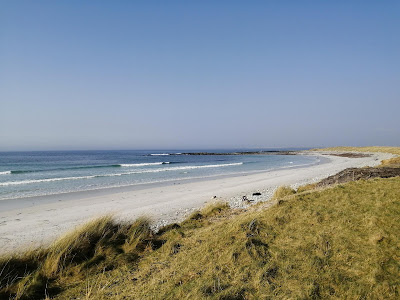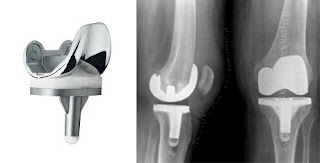I'm not quite sure where the time has gone, but it seems I never have enough of it to sit down and update this blog. I'm too busy juggling jobs. Or swimming. Or cycling. Or camping. Or seeing friends.
Two years have gone by. We've emerged from the pandemic to pick up the pieces, though our recovery is way behind that of other European countries. Our poor beleaguered NHS is facing sustained pressure - handclaps were never going to pay the bills - and people's incomes are dropping like stones. As if the pain of recovery were not enough, the world is embroiled in yet another war. Meanwhile, the planet...
So yes, there is a mood of despondency and there is very real anger out there, yet people continue to inspire and shine a light in the darkness.
In 2021 I had the good fortune to be involved with a multi-arts project working across six different community hospitals in Oxfordshire. Older people and those who are frail tend to spend a long time on the ward. It doesn't matter how hard nurses and doctors work, how warm and compassionate they are, people just want to be home amongst familiar faces and in their own bed. Enter a team of talented visual artists, a movement practitioner, a musician and a poet... We didn't disrupt the routine - the delivery of quality healthcare is paramount - but we did bring in ideas and adventures.
Here's a film made by the wonderful Emma Spellman which should give you a sense of some of the amazing things we achieved. Hats off to my colleagues. They are wonderful artists and I was very proud to be part of such a fantastic team.
If you need a film maker, do check out Emma's website Oojamaflick . She has a terrific portfolio.
I know I keep saying this, but it really is a privilege to work in our hospitals. I have enormous admiration for people's dedication and professionalism, especially after everything they've been through in recent years. And here's a special mention for those who keep the wards clean and change the bedding. You never see them in TV series, but they are part of the fabric of a hospital. They keep everyone going with their jokes and stories. They are often the social glue in what is a very busy day for staff.
On 1st December 2021 it was my turn to be in hospital when I became the proud owner of a new knee!
This shiny little bit of kit on the right doesn't come cheap. Hours of research and engineering went into it. The Oxford Knee is famous the world over. It's been refined and perfected several times since the day I got run over by a bus and ended up having a tendon transfer and a cartilage removed. 'Get back on your bike,' the surgeon told me. I thought he was joking, but he was absolutely serious. 'You're going to get arthritis. If you want to stay active and keep fit and healthy, start cycling again.'Apart from the endless fun and all the adventures I've had on various bikes over the decades, his advice proved sound. When my knee started to stick, I knew it was time to get a TKR. Prolonged aching is one thing. Stabbing sensations and sudden locking at traffic lights is quite another. I'd lasted 18 years longer than he predicted and it was only due to the daily bike ride. Basically, I was fit enough for the replacement. They do say you should try and improve fitness and nutrition before surgery if you're able to. I remember doing a mad bike ride in driving snow a week or two before the operation. It was our last adventure together. Now my old knee is ashes in some landfill and I have a shiny little bit of technology doing her job.
Thank you again NHS. You deserve every penny you can get. I hope you all get your pay rises and I hope the service thrives, never mind survives, long into the next century, assuming we haven't all murdered ourselves and burnt the planet to a crisp by then.
What next? Hours of physio - and let's hear it for physiotherapists now, because they really do get called some rotten names. They're only trying to get us mobile and independent again. Of course it hurts to increase the range of movement, but improvement comes incrementally, day by day, a little at a time, building strength, gaining confidence. Thousands of pounds are spent on these operations and we can't be bothered to do 30 minutes or so each day? Can you imagine how frustrating that is when so much is ploughed into our care? To ignore their advice is disrespectful. I've seen how hard they work and how much they care about patient wellbeing. In any case, I was really keen to get back on my bike, and I'd booked a two-month writing retreat in the Outer Hebrides. I was hardly going to be able to drive all the way up there if I lounged around not being bothered.
This is what I was aiming towards. It took three months eventually. Hebridean weather is not massively conducive to cycling. We're talking 60 mph winds here. I did eventually get used to cycling in 40 mph, but it was hard work and it was, quite frankly, terrifying. The causeways between the lochans are low and a sudden gust could pitch you into the water if you weren't careful. I know I have a love of open water swimming, but these little lakes were far colder than anything I've ever swum in.I was rediscovering my love of walking, anyway. Every day I walked for miles along white sandy beaches, down to the loch and up occasional hills.
The Isle of Benbecula is distinctly flat. It's moody and dark and strangely beautiful. No two moments are the same. One minute it's gloriously sunny, the next it's viciously windy and hail is driving at you like hundreds of deracinated teeth, then oh, a rainbow plants itself at your feet and burns the madness away. Small and sudden dramas and an ever changing light. It's an artist's dream, I suppose, but I would never be quick enough to capture any of it.
I was writing a novel, in any case. Far from the noise of the quotidian - the traffic, the planes, phones and ringtones, DIY enthusiasts, road repairs, dogs barking at window cleaners, dogs barking at people going past, Amazon deliveries, the blare of TVs, adverts, junk mail - noise, all of it. Not that Benbecula was quiet - but there is a difference between sound and noise and I was quickly discovering how profound that difference is.
Suddenly, I was writing several thousand words a day. I don't say it was necessarily good writing, but the point is, I was writing. I had the head space to think, to reflect, to turn something over and over before crafting it into some sort of shape. Eventually, I got into a rhythm. 45 minutes of physio before breakfast, a decent little feast of local produce, then a solid block of writing till about 2 o'clock. After than I would do a bit of shopping perhaps, and then walk for one, maybe two hours. The days were short. Darkness fell around 4 o'clock . It was important to make the most of each day. After a late lunch, I might go back to writing for a while, and then I'd light the fire and relax till bedtime.Gradually, I became more still and centred. People were worried that I'd be lonely, but this never happened. I valued the absence of a phone signal, though I welcomed the time I set aside for emails and WhatsApp calls. And I rejoiced in the ancient art of letter writing.






















